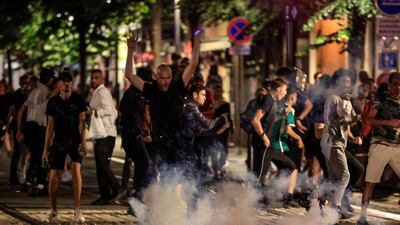France has banned the sale, possession and transport of fireworks during the July 14 national holiday weekend, following riots sparked by the police killing a teenager, the government said Sunday.
Fireworks were frequently seen during the unrest that exploded in France after a police officer shot dead a 17-year-old during a traffic stop on June 27 near Paris, rekindling long pent-up frustrations and accusations of systemic racism among France's security forces.
“To prevent the risk of serious disturbances to public order during the July 14 festivities, the sale, possession, transport and use of pyrotechnical articles and fireworks is banned until July 15 inclusively,” said a government decree published in the official Journal on Sunday.
The ban does not extend to professionals or municipalities that are organising traditional fireworks for the Bastille Day celebrations, it added.
Worried about a possible resurgence of rioting, Prime Minister Elisabeth Borne told the daily Le Parisien on Saturday that the government would use “massive means to protect the French” during the national holiday.
Fireworks displays are an annual feature of Bastille Day celebrations. They are also often used during protests in the country.
The police killing in the Paris suburb of Nanterre of Nahel M, who had Algerian roots, sparked France's worst urban violence since 2005.
More than 3,700 people were taken into police custody in connection with the protests since Nahel's death, including at least 1,160 minors, according to official figures.
Public officials have expressed fear of violence around July 14 celebrations, particularly in some of the capital's long-neglected suburbs, where the worst of the violence occurred.
“All it takes is a spark that ignites emotions,” said Aubervilliers mayor Karine Franclet in a TV interview earlier this week.
“The 13th and 14th of July are known to be difficult nights, so obviously, it raises questions.”
Agencies contributed to this report

